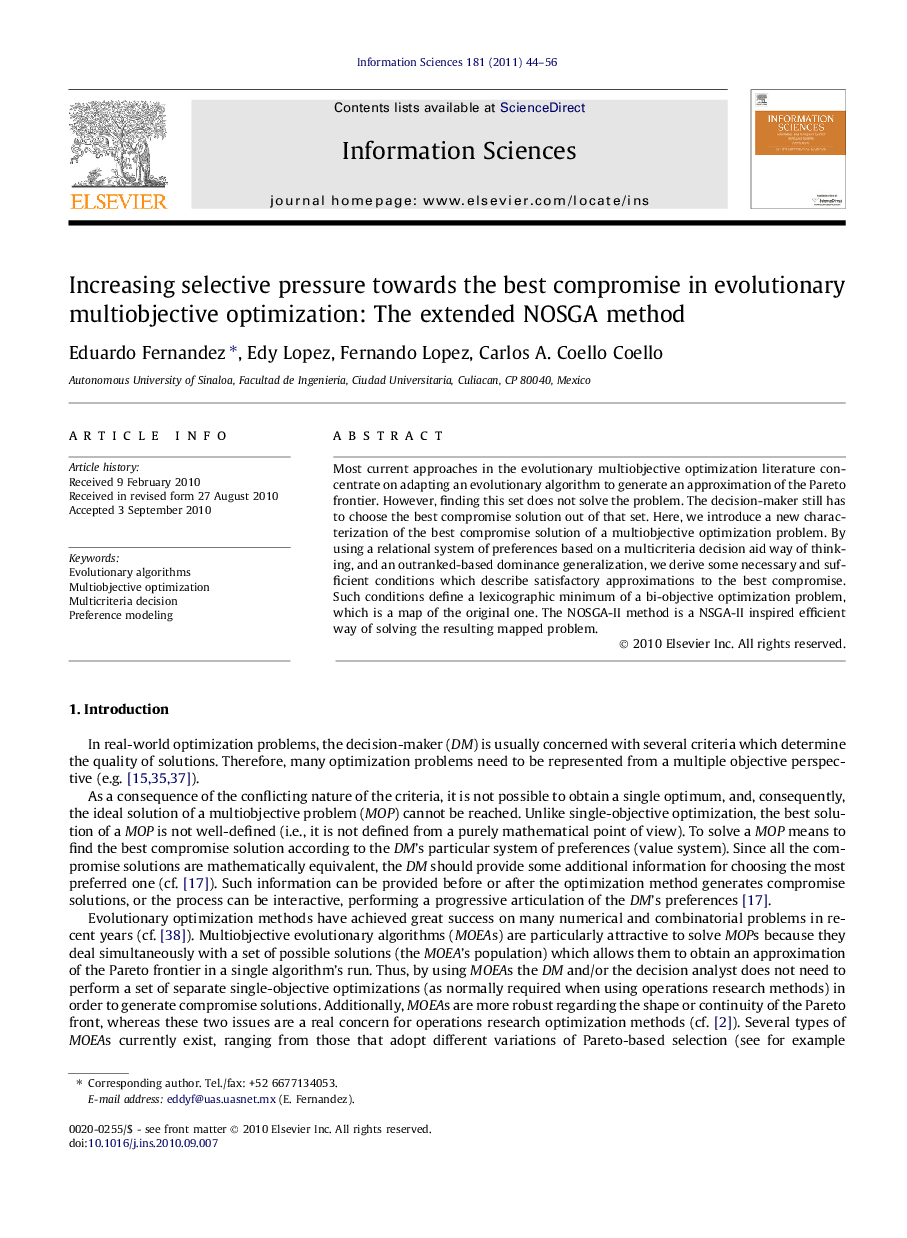| Article ID | Journal | Published Year | Pages | File Type |
|---|---|---|---|---|
| 394340 | Information Sciences | 2011 | 13 Pages |
Most current approaches in the evolutionary multiobjective optimization literature concentrate on adapting an evolutionary algorithm to generate an approximation of the Pareto frontier. However, finding this set does not solve the problem. The decision-maker still has to choose the best compromise solution out of that set. Here, we introduce a new characterization of the best compromise solution of a multiobjective optimization problem. By using a relational system of preferences based on a multicriteria decision aid way of thinking, and an outranked-based dominance generalization, we derive some necessary and sufficient conditions which describe satisfactory approximations to the best compromise. Such conditions define a lexicographic minimum of a bi-objective optimization problem, which is a map of the original one. The NOSGA-II method is a NSGA-II inspired efficient way of solving the resulting mapped problem.
